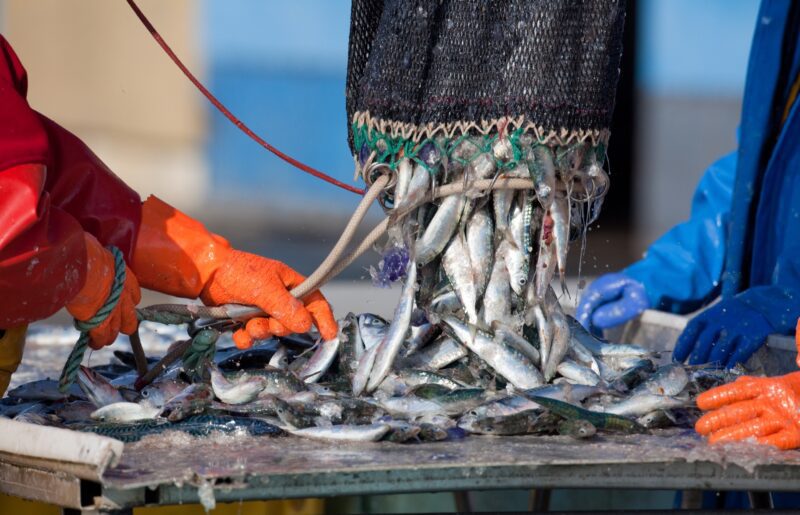Moroccan authorities are stepping up. The Secretary of State for Maritime Fisheries categorically rejected, on Sunday, June 29, the accusations relayed by an online media outlet claiming that trawlers operating at the port of Laâyoune had engaged in the massive capture of juvenile sardines, jeopardizing local fishery resources.
In an official statement, the department referred to “falsehoods,” “unfounded allegations,” and “lies,” while providing a documented, quantified denial, accompanied by control elements from the field.
Precise data on landings
According to the authorities, the sardine campaign conducted in Laâyoune from June 16 to 27 resulted in a landing of 17,000 tons. During this period, daily samples were taken by the local delegation of maritime fisheries as well as by the National Institute of Fisheries Research (INRH). The results indicate sardine sizes compliant with regulatory standards, with a density varying from 33 fish per kilogram on June 20 to 22 fish on June 26, which remains within the authorized thresholds.
An inspection mission conducted by a central commission between June 17 and 22 found only one violation, related to a false declaration, with no connection to the capture of juveniles.
A regulated framework and strict sanctions
The Secretary of State also reminds that the production of fishmeal and fish oil is strictly regulated: only the residues from export and freezing units can be destined for this purpose. Freezing units, on the other hand, are free to direct their production according to commercial agreements with their clients, particularly in the context of aquaculture activities.
In line with a sustainability logic, a small pelagic management program is in place. It provides for quotas per operating unit, as well as minimum catch sizes, to ensure the sustainability of fish stocks.
The Secretary of State emphasizes its zero tolerance towards illegal practices: any proven violation will be sanctioned in accordance with the current legislation. It also calls on the media to exercise responsibility by referring to official sources before disseminating information that could cause confusion or unjustly harm a strategic sector.
An industry under constant surveillance
While fishing is a pillar of the regional and national economy, particularly in the Southern provinces, the ministry wants to reassure about the rigor of controls and respect for biological balances. In Laâyoune, fishing operations are monitored daily by the authorities, making any widespread drift as described in the incriminating article unlikely, according to them.
In a context where sustainability and food sovereignty issues are becoming increasingly central, Morocco aims to protect its marine resources while maintaining the competitiveness of its fishing sector. This official denial serves as a reminder of the importance of rigorous and responsible information handling, especially when it concerns sensitive areas such as the environment and food security.
With MAP


